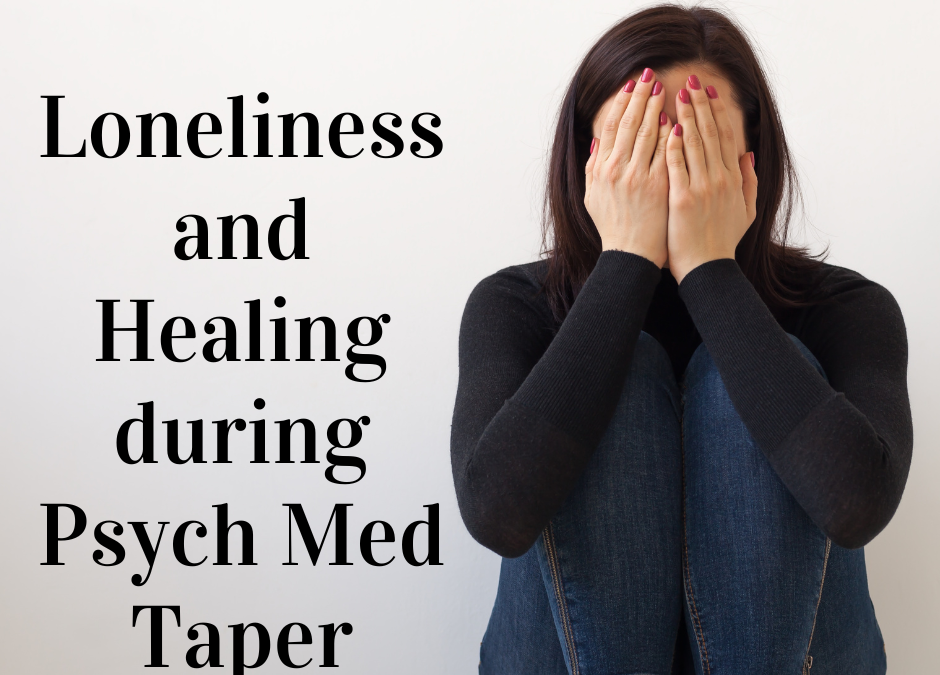Medication tapering can be a crucial part of the healing journey, helping individuals reduce dependence on certain medications while rediscovering balance in their mental and physical health. This medication tapering and healing journey, however, often comes with challenges like emotional isolation and loneliness. During the tapering process, managing withdrawal symptoms and finding support can be difficult, especially when those around you may not fully understand the journey. In this blog, we’ll explore the medication tapering and healing journey more deeply, discussing both the emotional and physical aspects and strategies to find support along the way.
What Is Medication Tapering?
Medication tapering involves gradually reducing a prescribed medication dose, under medical supervision, to minimize withdrawal symptoms and avoid rebound effects. This approach is common in treatments for conditions like anxiety, depression, and chronic pain, where individuals may have been on long-term medications, such as SSRIs, benzodiazepines, or opioids. Properly planned tapering aims to reduce dependence and encourage the body’s natural healing processes to function without external assistance.
The Emotional Journey of Tapering: Loneliness and Isolation
One of the most challenging aspects of medication tapering is the emotional toll it can take, especially when it leads to a sense of isolation. During tapering, individuals may experience:
- Withdrawal Symptoms: Many medications, particularly those for mental health conditions, can trigger physical and emotional withdrawal symptoms. These symptoms can make regular social interactions challenging, leading some to withdraw from friends, family, and work.
- Emotional Vulnerability: Tapering often brings a heightened sense of vulnerability as the body readjusts to managing emotions without medication. You might find that emotions you haven’t felt in years—anxiety, sadness, or even joy—resurface, leaving you feeling exposed and potentially misunderstood by those around you.
- Social Stigma and Misunderstanding: It’s common for others to misunderstand the medication tapering process, with some assuming that tapering is unnecessary or dangerous. Unfortunately, this lack of understanding can increase feelings of isolation, especially when people in your life don’t empathize with the challenges you’re experiencing.
- Questioning Identity: As medications are reduced, you might experience moments of questioning who you are outside of medication. This can be both empowering and disorienting, adding to the complex emotions involved.
Why Support is Essential During Tapering
Support is invaluable during medication tapering, as it can help to combat feelings of loneliness and provide a steady source of encouragement. Social support plays a role in reducing stress, building resilience, and offering a listening ear when symptoms or emotional challenges feel overwhelming.
Where to Find Support During Medication Tapering
- Therapists Specializing in Medication Tapering: Finding a therapist with expertise in medication management or holistic approaches can make a world of difference. They can help you explore your feelings and address withdrawal symptoms or emotional difficulties as they arise.
- Online Support Groups: Virtual communities dedicated to medication tapering provide an accessible, non-judgmental space to share experiences. These groups often consist of individuals at different stages of tapering, making it a resource-rich environment to learn about others’ experiences, coping strategies, and successes.
- Friends and Family Support: For those willing to open up, friends and family can play an essential role. Choose individuals who listen without judgment and express empathy for your journey. Sharing articles or resources on tapering may also help them understand what you’re experiencing.
- Mindfulness and Meditation Communities: Practices like meditation and mindfulness can be beneficial during tapering, helping you to stay grounded and manage emotional fluctuations. Many communities, both online and in-person, focus on these practices and offer supportive, non-judgmental environments.
Coping Strategies for Dealing with Loneliness and Isolation
- Mindfulness Practices: Regular mindfulness can help you observe and process emotions as they come up during tapering. Consider journaling or meditation as ways to make sense of these emotions, which can provide a sense of comfort and routine.
- Self-Compassion: Practice self-compassion by reminding yourself that this process is temporary. Each day of tapering is a step closer to your goal of independence from medication, and acknowledging this can reduce feelings of self-doubt and help you celebrate small victories along the way.
- Stay Engaged with Interests: While tapering, it’s essential to engage in hobbies or passions that provide joy and connection. Whether it’s art, music, nature walks, or reading, maintaining hobbies can remind you of your identity outside of medication and give you a positive focus during challenging times.
- Physical Activity: Gentle exercise, such as walking, swimming, or yoga, can naturally boost mood and help to stabilize energy levels, which may fluctuate during the tapering process.
- Set Boundaries for Social Interactions: Tapering can be an emotionally taxing process, so remember that it’s okay to limit social interactions if they feel overwhelming. Prioritize meaningful connections, and don’t hesitate to turn down invitations if you need time to recharge.
Building a New Life After Tapering
As tapering ends and you continue on the path of healing, consider how to re-engage with the world from a fresh perspective. For many, the end of tapering brings new clarity, personal insight, and a stronger sense of purpose. Take time to celebrate your achievements, set new personal goals, and embrace the opportunities that come with the changes you’ve worked hard to achieve.
The journey of tapering isn’t always easy, but with patience, understanding, and a supportive network, it can lead to a deeply transformative experience.

